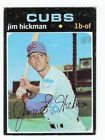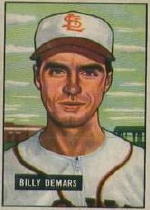 |
| Perfect Penmanship To This Day! |
True story…
The first time I ever heard a Cubs game on the radio, I thought Jack Brickhouse called Jim Hickman “Jim HITMAN.” Even though I found his name spelled correctly in a box score, I couldn’t wait to get a look at his baseball card, or whole personage on TV.
I was stunned. Stone-faced. Stoic. Until the 1970 Cubs needed some offense. Wow!
I asked how he felt having the award “Comeback Player of the Year.” Hickman wasn’t any slouch during the 1969 season, with stats good enough to please most teams. While 1970 was a career year, I didn’t think he “came back” from rack and ruin. How did he feel about the label?
“Really didn’t matter to me one way or the other.”
You want humility? Listen to this explanation of his ’70 power explosion, with career bests in homers and RBI:
“I was blessed with some power. In 1970, I was a better hitter and used the power.”
During that momentous year, Hickman even smacked a game-winning single in the all-star game. When did he realize how Pete Rose cashed in on that hit, steamrollering catcher Ray Fosse for the winning run?
“I saw the play from first base. It happened so fast I didn’t take it all in at the time.
In the replays, you can see Pete started to slide then changed his mind.
Pete played hard on every play. I’m just sorry Fosse got hurt and I’m sure Pete was, too.”
Tomorrow: A note arrives from another Chicago fan favorite, “Jungle Jim” Rivera.


